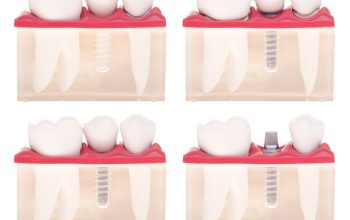


Maintaining good oral and dental hygiene can greatly reduce tooth loss, decay, and gum issues. A dentist should always be visited at least once a year (twice is best) in order to ensure your mouth is as happy as can be. If a dentist is not frequently visited, you run the risk of gingivitis. There is treatment for gingivitis, but it is important to first learn the signs and causes and health risks involved.
What is it? Gingivitis is a periodontal disease that causes inflammation of the gum tissue surrounding the teeth. This disease is usually caused by a buildup of biofilm, called plaque, which adheres to the tooth’s surface and if not removed on a regular basis can harden and cause the inflammation.
Signs About 2/3 of American adults believe good teeth attract the opposite sex, but it would be difficult to win someone over with gingivitis. Make sure to look for swollen, bright red (or even purple) gums, gums that are painful to the touch or when flossing; easy bleeding or bleeding after brusher and/or flossing, and bad breath (as a result of the buildup of plague and other bacteria). If you notice any of these symptoms, consult a gum doctor or your family dentist.
Causes The cause of gingivitis is, as mentioned, the buildup of plaque on the gums and where the gums meet the teeth. The bacteria can lead to the destruction of the underlying gum tissue- called gingival. Not consistently brushing, flossing, and using mouth wash whose purpose is to prevent plague and gingivitis can greatly increase your chances of developing this disease.
Health risks There are a number of health risks if gingivitis is not treated promptly and properly, such as tooth loss. Tooth loss can make it hard to eat, and also embarrassing to smile. Swollen glands can occur, as well as infections of the jaw bones. Periodontitis is a serious health concern as well as trench mouth (bacterial infection of the gums).
Treatment A good dentist should be able to detect signs of gingivitis if you are unable to or unsure of what you are observing. Treatment for gingivitis includes proper gum treatment measures such as flossing and brushing not just the teeth, but the gum line. Various prescription strength mouth washes are also a very effective treatment for gingivitis because it kills off any bacteria related to the disease. So be sure to stop the disease before it even begins by knowing the signs, symptoms, and preventative measure.
sources
http://en.wikipedia.org/wiki/Gingivitis
Read this for more.



